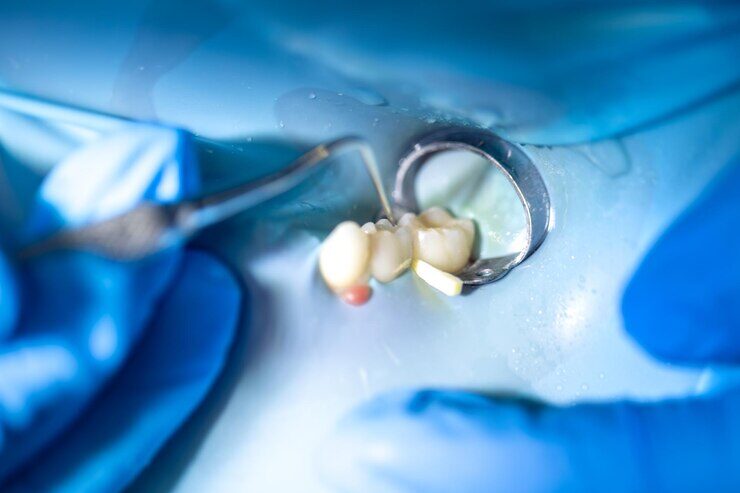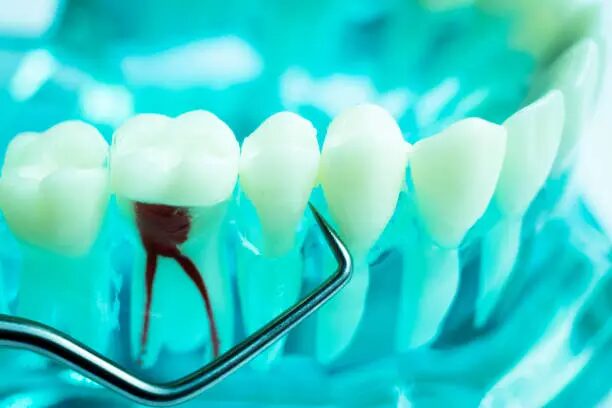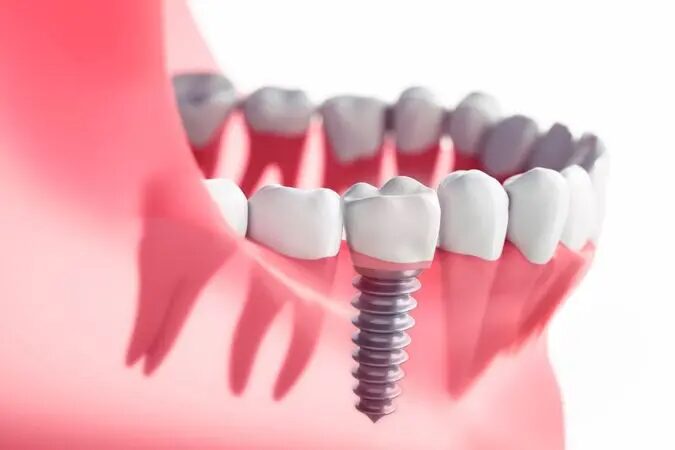If your endodontic specialist has prescribed an anterior root canal treatment, you may be concerned about what this procedure entails and how your teeth will change in the future. This is a major concern because the front teeth have the added responsibility of defining a smile. Anterior root canal treatment is much the same as any other tooth, but there are certain differences and unique characteristics that need to be considered. By understanding each step in your treatment, you can feel more comfortable with your upcoming root canal.
Why a Root Canal is Needed?
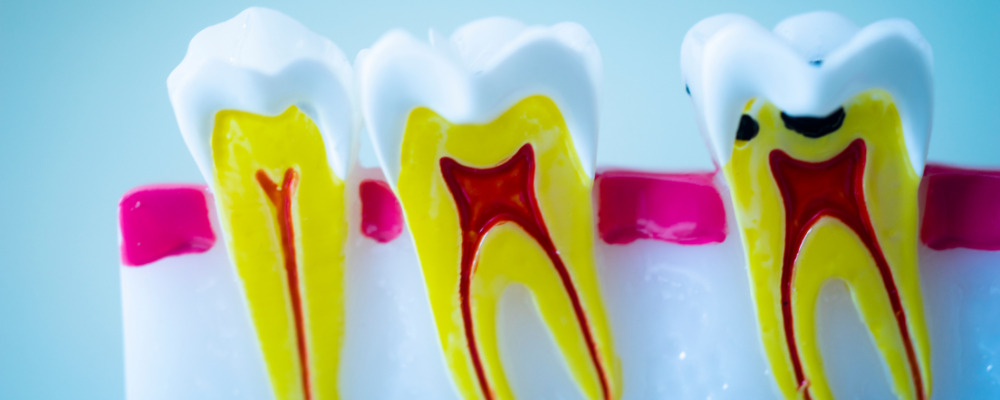
The first thing to understand is why you need a root canal in the first place. All teeth have a blood supply, nerves, and other tissue found in hollow chambers (“channels”) within the tooth. The collection of these blood vessels, nerves, and tissues is called the pulp. The pulp itself may become infected in the case of deep tooth decay, periodontal disease, or other conditions where bacteria get inside the tooth. This condition is commonly known as an “abscess”.
The pulp provides bacteria with essential nutrients that promote infection. Only by removing the pulp from the tooth can you get rid of the infection forever. This is what root canal therapy achieves.
How long does a Root Canal on Front Tooth take?
Because incisors usually do not have one or more tubes, the process is usually completed within 30 minutes. The exceptions are anterior teeth with calcified canals or abnormal anatomy within the tooth structure itself.
Need a crown on the front root?
Best Dental Clinic always recommends covering the teeth after root canal treatment. Dental crowns help prevent cavities and fractures after root canal treatment.
How long a tooth can last without a crown can vary. Most teeth will break within a year if not capped after a root canal.
What should I do before the procedure?
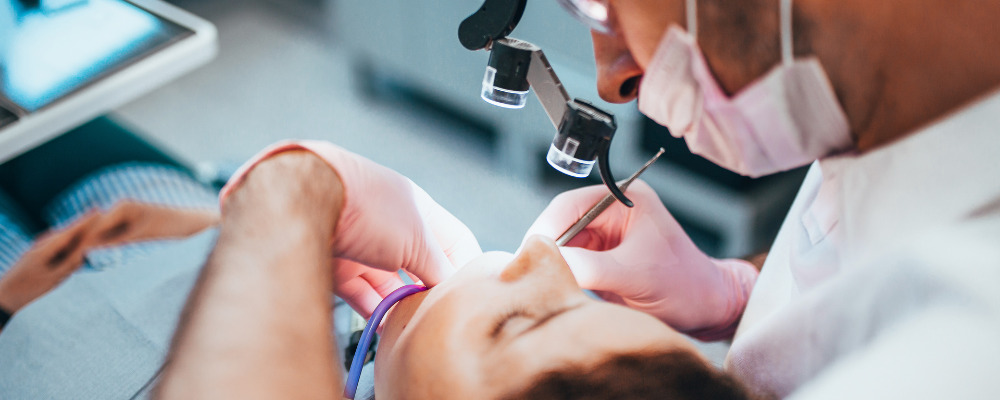
It is important to follow your doctor’s specific instructions before the procedure. If you are not on intravenous sedatives, you will want to eat and take your medicine as usual before the root canal.
What should I do after the procedure?
Not only will you feel some pain when bitten in this area, but you will also feel some pain and discomfort because your jaw is open during the procedure. This is business as usual. Taking over-the-counter pain relievers or prescription medications may help relieve the condition. Carefully follow your doctor’s treatment instructions to avoid problems. If you feel severe pain or pressure that continues after a few days, you should call your doctor, as it could be serious.
What are some symptoms that indicate you may need root canal treatment?
Root canal treatment is necessary when oral bacteria invade the pulp of the tooth. This usually occurs when the cavity has not healed for a long time. It can also occur if a tooth is cracked or damaged due to trauma.
What conditions require root canal treatment?
In some cases, you may not even know you have an infected tooth. However, many people notice certain symptoms.
Signs you may need root canal treatment include
Toothache that doesn’t go away: Toothache can be caused by many dental problems. Root canal treatment may be necessary if the pain is felt deep in the tooth. Discomfort may also spread to the jaw, face, or other teeth.
Heat and Cold Sensitivity: If you have a toothache when drinking hot coffee or eating ice cream, it could mean you need root canal treatment. This is especially true if the pain lasts longer than a few seconds.
Swollen Gums: When a tooth becomes infected, pus may accumulate in this area. This can cause your gums to swell, swell, or hurt.
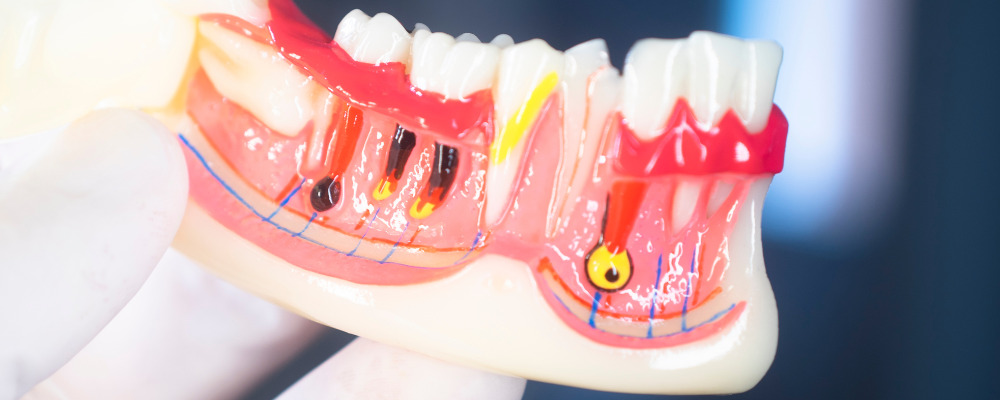
Pimples on the Gums: Pimples or boils on the gums may occur. Pus from an infected tooth can ooze from the pimple, causing an unpleasant taste or smell.
Swollen Jaw: Sometimes pus does not drain in place. As a result, your chin may visibly swell.
Tooth Discoloration: When the pulp of a tooth becomes infected, it may appear darker. This is due to poor blood supply to the teeth.
Pain on Pressure: Pain when eating or touching the teeth may indicate damage to the nerves around the pulp.
Broken or Cracked Teeth: Cracked teeth due to accidents, playing sports, or even biting hard can allow bacteria to enter the dental pulp.
Loose Teeth: Infected teeth may feel loose. This is because pus from the infected pulp can soften the bone that supports the tooth.
Are you experiencing tooth pain or sensitivity? It could be a sign that you need a root canal. Our latest blog post, “Microscopic Root Canal Treatment” provides a comprehensive overview of this common dental procedure.
What are the procedures?
Root canal treatment is a complex procedure performed in 2 to 3 visits. Let’s take a look at the major steps in anterior root canal treatment.
Prep
First, your dentist or root canal specialist will take x-rays of your teeth to determine their shape and analyze the spread of infection. Your dentist will apply a deep local anaesthetic to the area so you don’t feel any pain. The doctor then places a rubber dam, a thin plastic film, over the tooth to expose only the damaged tooth. Then drill the access hole.
Pulp removal
The soft tissue in the root canal is carefully removed to prevent bacteria and infection from accumulating in the cavity. The surgeon must remove all tissue at this stage because this chamber will eventually close cleaning. Once the pulp is gone, the dentist or endodontic specialist cleans the chamber to prevent an abscess from forming. Rinse the area thoroughly with water or sodium hypochlorite to wash away any bacteria and/or remaining particles. If you have a serious infection, doctors may give you drugs at this stage.
Sealed
Now that the root canal has been removed without becoming infected, the doctor will fill the root canal to prevent bacteria from entering the area again.
Filling
Often during the second visit, the dentist or root canals will use the paste to fill the access hole created during the original procedure.
Crown
If a tooth has structural damage, doctors may place a crown over the tooth to prevent it from cracking.
- 12 Free Consultations
- 10% off on all Treatments
- 1 Free Smile Assessment
Are there complications to be aware of?
You’ll probably feel some pain after a root canal. But this pain should go away after a few days. Return to your dentist if you keep feeling pain after a week of healing, especially if it doesn’t get any better or gets worse. In general, root canals are extremely safe and root canal infections aren’t common Trusted Source.
That said, here are some symptoms that should prompt you to see your dentist:
- Pain or discomfort that’s anywhere from light tenderness or slight aching pain to intense pain that gets worse when you put pressure on the tooth or when you drink something hot or cold
- Discharge or pus that looks green, yellow, or discoloured.
- Swollen tissue near the tooth that’s red or warm, especially in the gums or in your face and neck
- Noticeable, unusual odour or taste in your mouth from possibly infected tissue
- An uneven bite can occur if the temporary filling or crown comes out.
What are common failed Root Canal Symptoms?
Root canal complications can occur in some cases. This is especially true if your tooth is too damaged for this type of treatment. Failed root canal symptoms include:
- Pain.
- Swollen gums.
- Pus or drainage.
- Tooth discolouration.
- Pimple or boil on the gums.
- Sinus problems.
What happens if you need a Root Canal but don’t get one?
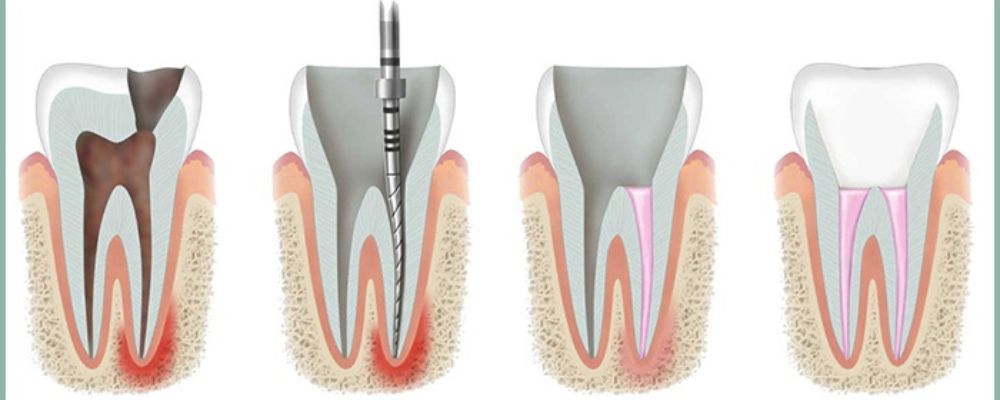
Root canals are a great help for infected, traumatized or damaged teeth. Without a root canal, the tooth may be exposed to infectious bacteria and further damage may occur due to the weakening of the tooth core. Do not choose extraction as an alternative to a root canal, even if you want it to be less painful. Root canal treatment has become less painful in recent years due to advances in anaesthesia and analgesia. Unnecessary tooth removal can damage tissues in the mouth and jaw.
How much do root canals on the front teeth cost?
Root canals on front teeth are typically covered by dental insurance plans. The exact amount of coverage varies by the specifications of your plan and how much of your insurance deductible you’ve already used on other dental cleanings and procedures. Root canals on front teeth tend to be a little cheaper than on other teeth because the procedure is a bit simpler. A root canal on a front tooth will likely cost anywhere from $300 to $1,500 if you’re paying out of pocket, with the average range between $900 and $1,100.
What are the alternatives to Root Canal Treatment?
The only alternative to root canal therapy is tooth removal. Even though it’s best to save natural teeth whenever possible, extraction may be necessary to preserve your oral health. If you’re not a good candidate for root canal treatment, the tooth can be extracted and replaced with a dental implant, dental bridge or partial. To learn more about root canal vs extraction, call your healthcare provider.
What are Root Canal care tips?
After root canal treatment, it is important to keep the area clean. Brush your teeth, floss and use an antibacterial mouthwash to keep germs at bay. If you still have a temporary filling and a permanent crown has not yet been placed, do not chew on the treated tooth until the crown is in place.
Don’t let a dental issue hold you back from enjoying your favourite foods or activities. Contact us now to schedule your consultation and get the treatment you need to get back to living life to the fullest.



